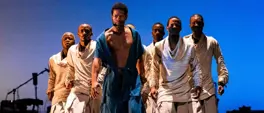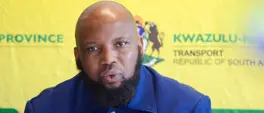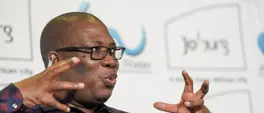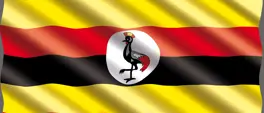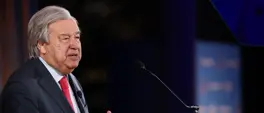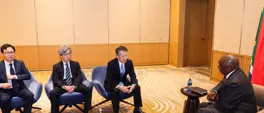Botswana's praised peaceful transition to opposition
AFP
1 November 2024 | 14:12Veteran politician Mokgweetsi Masisi, 63, announced early Friday he would hand the reins of government to human rights lawyer Duma Boko, 54, in the coming days after the collapse of his Botswana Democratic Party (BDP) in Wednesday's legislative elections.
GABORONE - The orderly handover of power unfolding in Botswana after an astonishing election result that broke the ruling party's 58-year grip on power has won praise for its remarkably democratic calm.
Veteran politician Mokgweetsi Masisi, 63, announced early Friday he would hand the reins of government to human rights lawyer Duma Boko, 54, in the coming days after the collapse of his Botswana Democratic Party (BDP) in Wednesday's legislative elections.
It was an unexpected turnaround for the BDP which has ruled Botswana since independence from Britain in 1966 and was widely expected to roll into another five-year term at the helm of the diamond-rich nation.
Boko is a breath of fresh air for the arid country of some 2.6 million people where youth have expressed frustration with a BDP-dominated system that many felt was keeping the benefits of the country's mineral wealth for an elite few.
"What has happened today takes our democracy to a higher level," Boko said in an interview with the independent Mmegi media outlet after Masisi conceded defeat.
To his supporters he said: "You really voted in your own interests, for your rights, for a dispensation that is responsive, that is agile and that protects and defends your fundamental rights."
Elegant and youthful, the Harvard-educated attorney had already run for president twice, defeated at elections in 2014 and in 2019.
His Umbrella for Democratic Change (UDC) alliance alleged vote-rigging in favour of the BDP at the 2019 poll but a court dismissed their case.
This year the party set up a special unit to scrutinise every aspect of the election, saying it had identified irregularities.
Reputed to be scrupulously honest, Boko graduated from the University of Botswana with a law degree in 1993 and obtained a master's of law at Harvard in 1995.
He formed the UDC in 2012 to unite the opposition to the BDP.
DEMOCRATIC PRIDE
Botswana has been a democracy since independence and prides itself as the oldest democratic system in the region.
"The fact that the president was quick to concede defeat also cements the democratic credentials of Botswana, as one of the leading lights in the democratic space," said Washington Katema, director of the Southern Africa Human Rights Defenders Network, a regional group of human rights advocates.
Alternation of leadership is a key marker of democratic progress but this had not occurred in Botswana for 58 years, so this transition "is a good sign," he said.
"Many of us were concerned about democratic backsliding prior to this poll," said Christopher Vandome, senior research fellow with the British think tank Chatham House's Africa Programme.
"There were signs that the powers of incumbency might be manipulated to guarantee a result. What we see today is that the system is robust and was able to deliver peaceful change," said Vandome.
There were claims of bad governance, vote manipulation and corruption under the watch of Masisi, whose father was a cabinet minister in the BDP's first post-independence government.
Masisi was handpicked by his predecessor, Ian Khama, to take over as president in 2018, although the two had a major falling out afterwards.
The party won praise for setting impoverished Botswana on a course of development funded by diamond sales in its first decades in power but was criticised later for economic reversals, mismanagement and nepotism.
In conceding defeat, Masisi said he had wanted a second term but saw from the vote results that it was time to go.
"I am proud of our democratic processes and I respect the will of the people," he said. "So we're quite happy to retreat into being a loyal opposition and to hold the government accountable."
Get the whole picture 💡
Take a look at the topic timeline for all related articles.

